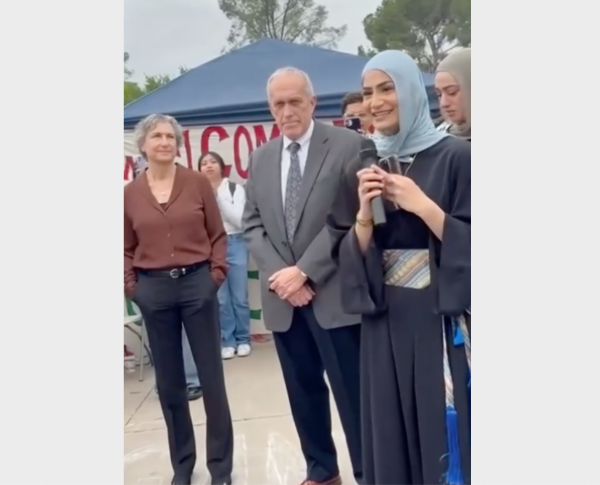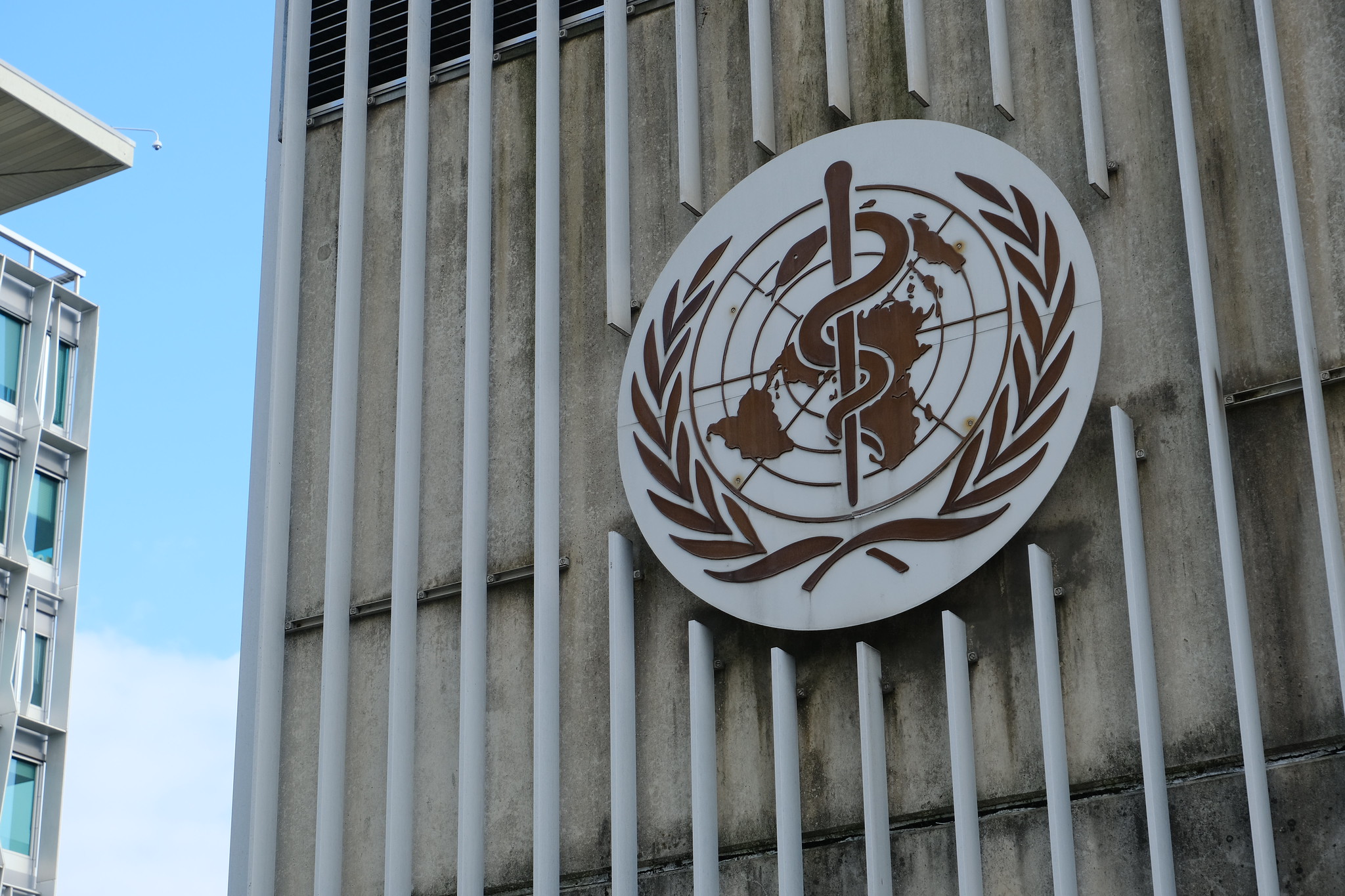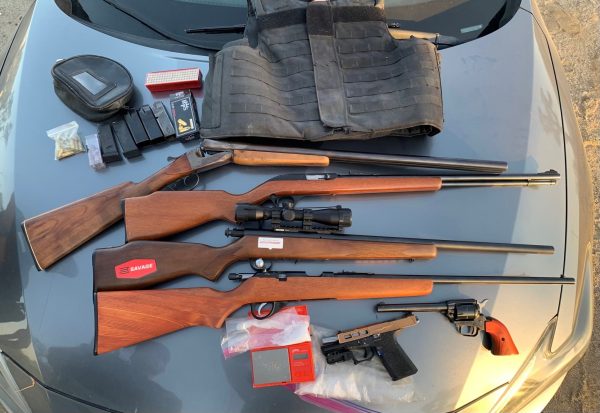The pro-Palestine encampment at UC Riverside ended peacefully after student protesters and university officials made several concessions to the protesters’ demands, UCR Chancellor Kim Wilcox announced Friday.
The concessions in the agreement “will be carried out consistent with state and federal law,” Wilcox said in a statement. “It has been my goal to resolve this matter peacefully, and I am encouraged by this outcome — which was generated through constructive dialogue. …
“This agreement does not change the realities of the war in Gaza, or the need to address antisemitism, Islamophobia, and other forms of bias and discrimination; however, I am grateful that we can have constructive and peaceful conversations on how to address these complex issues,” Wilcox said.
“As students, we love our university as much as we love our Palestinian homelands, and this resolution reflects our deep commitment to justice and call for the university’s complicity in genocide,” the UCR chapter of Students for Justice in Palestine said in a statement.
“We are proud to be the first campus in the University of California to peacefully end our encampment, without any violence, arrests, or dismissals and meet the demands of the students,” the UCR-SJP statement said.
A key provision in the five-point agreement is the formation of a student task force that will research how to cancel the UC Investment Office’s management of UCR’s financial endowment.
Divestment from weapons manufacturers connected with the Israeli military was one of the initial demands made by protest organizers at the start of the encampment on Monday.
“The UCR Administration agrees to form a task force that includes students appointed by ASUCR’s Diversity Council and faculty appointed by the Academic Senate to explore the removal of UCR’s endowment from the management of the UC Investments Office, and the investment of said endowment in a manner that will be financially and ethically sound for the university with consideration to the companies involved in arms manufacturing and delivery,” according to the agreement.
The task force will form by the end of the 2024 spring quarter, and its goal will be to present a report to UCR trustees by the end of next year.
University officials also agreed to post online all companies in UCR’s investment portfolio.
The list of investments “will continue to be updated as the UC releases more information,” according to the agreement. “The goal is to get full disclosure of the list of companies in the portfolio and the size of the investments.”
In other provisions, UCR said its “School of Business has discontinued Global Programs in Oxford, USA, Cuba, Vietnam, China, Egypt, Jordan, and Israel,” and the university “will modify its approval process for all study-abroad programs to ensure compliance with UC’s Anti-Discriminatory Policies.”
The agreement also included “an ongoing review of Sabra Hummus … until we can find a resolution.”
Sabra is co-owned by U.S.-based Pesi Co. and the Israel-based Strauss Group.
“Sabra’s name was included in the agreement because it was mentioned in the protestors’ list of demands,” according to a UCR statement. “Sabra’s availability on campus will be reviewed in the same manner as other vendors.”
Signers on the agreement included Wilcox, three vice chancellors, UCR-Students for Justice in Palestine President Hibah Nassar and protest negotiator Samia Alkam, a graduate student.
Unlike the violent clashes between protesters and police at UCLA this week, there was no obvious law enforcement presence at UCR as demonstrators established several dozen tents under the Bell Tower at the center of campus starting Monday. On Wednesday, students walked out of classes and rallied at the Bell Tower.
Protests to show solidarity with Palestinians and condemn actions by Israel’s government and military have taken place nationwide for the last several weeks.
On social media Nasser said the protests at UCR were intended to “condemn war crimes and crimes against humanity.”
According to published reports, nearly 35,000 people have been killed in Gaza — including more than 14,500 children — since the Hamas attacks on Israel last fall. Casualties exceed 77,000.
Israel’s official casualty rate for the same period is 8,730, of which just over 1,000 have been deaths.
Many civilian structures such as schools, places of worship and hospitals in Gaza have been targeted by the Israeli military, displacing hundreds of thousands of people and killing many noncombatants such as journalists and aid workers, according to reports from the region.
Updated May 6, 2024, 12:26 p.m.







